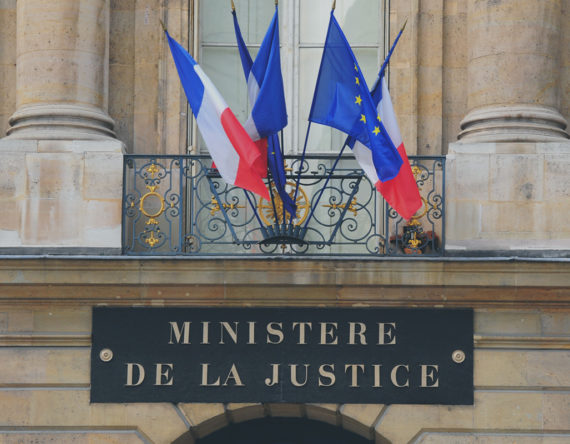In an hour-long hearing with representatives of the “Commission des Lois,” Mr. Duchaine updated the representatives on a variety of actions taken to date, those in the works, and clarified his mission and that of the AFA.
The thoughtful presentation covered many issues that are interesting practically and directionally to those who may be subject to the new law. The following are notable highlights from the discussion:
Progress is being made by the AFA Entity.
The AFA is 51 members strong, so far, of a budgeted staff of 70, (and 8 more to be hired); has offices and an organization chart; and is not structurally divided between the public and private sectors. The scope of entities under AFA’s purview is approximately 30,000. It will also have its own dedicated website soon.
First recommendations have been issued on the eight obligations of companies under the law, and a second wave is expected.
AFA issued a first set of recommendations on October 5, 2017, covering: (1) the evaluation and assessment of risks; (2) the implementation of a code of conduct regarding anti-corruption; and (3) the implementation of an internal whistleblower reporting process. These recommendations are part of its responsibility and are submitted to public comments. (They can be found [in French] at the following link: https://www.economie.gouv.fr/afa.) The second publication is expected in early November and will be subject to public comments for a period of approximately one month. A list is available on its website as well.
Inspections of private entities are underway.
The AFA has notified certain entities that they are being reviewed. It seems that the first requests for documentation have been issued and that, in early December, the audit staff will start visiting these companies. At this time, public entities are not on the radar screen until the AFA formulates what would be expected of them.
There are limitations on the law and its interpretation.
a. Views on Monitorships resulting from Conventions Judiciaires d’Intérêt Public (the DPA “à la française”)
- Duchaine expressed disappointment that Sapin II, at this time, does not provide for the AFA to act as a monitor for the implementation of measures resulting from a settlement.
- He believes the AFA solely should be empowered to act as such, either through the recruiting of external consultants or with its own resources, at the expense of the concerned companies or administrations. Also, the AFA could directly invoice the companies and create a source of revenue for the government.
- He recognized that at this time, the AFA does not have the knowledge or the means to fulfill that role.
- He does not think it is appropriate for British or American law firms to act in that capacity, even if agreed to with companies; in his view, the agreements may result from some “tension,” and secondly, this takes away from French government authority. Lastly, he thinks that monitorships managed by foreign law firms may expose French companies to industrial and economic espionage.
One can posit whether the AFA could audit, recommend, turn over to the judicial branch, and monitor the implementation of required changes as part of a DPA to adopt and implement its recommendations as part of its mission. Although, as Mr. Duchaine pointed out, the role of the AFA is focused on prevention rather than legal enforcement.
b. Coordination with Other Agencies and Ministries
There are currently limited opportunities for the AFA to obtain information from other agencies under Sapin II. Mr. Duchaine would like the law to enable the AFA to have tools in place to better share information, and to be more informed and efficient.
c. Whistleblowers
The president of the AFA indicated that he would like the text of the law to allow for whistleblowers to contact the agency directly. He points out that it is very possible that the legal mechanisms in place for whistleblowers may not be satisfactory to them and that the AFA may be the recipient of anonymous tips, nevertheless. As it is within its jurisdiction to decide to act upon information or start an inspection, he did not exclude the fact that the AFA may act upon a tip, if it receives one. This may send some chills down the spine of some companies as there are very specific steps that need to be followed as contemplated by Sapin II.
d. Territoriality
At this time, the AFA does not have extraterritorial laws that are as developed and far reaching as those of other countries. He would like more tools under the law in order to be on equal footing with other foreign jurisdictions to either conduct reviews on behalf of foreign regulators or prevent foreign companies from trying to avoid being in the scope of Sapin II (for example, by reducing headcounts).
e. Coordination with Other Similar Regulators
The AFA is interacting with other agencies in Europe (Italy and Germany, as well as the U.K.), although, Mr. Duchaine pointed out that some of these agencies have a mission that is more repressive than preventive.
f. Scope of the AFA’s Recommendations and Expectations Compared to the Scope of Other Foreign Regulations
Mr. Duchaine shared that he expects compliance with AFA recommendations, ideally, to enable companies to satisfy even the most exacting requirements. He believes the AFA will rely upon other guidance and best practices to create the recommendations, and this companies complying with Sapin II would not find themselves in a situation where, although, compliant with AFA recommendations, they are in violation of similar regulations in other countries.
For more information on Sapin II, please see our previous updates:
The French Anti-Corruption Agency “Goes Live”
So Much for the First Possible French DPA- UBS is Heading to Court
Sapin II Update – An Early Contender for French DPA?
Prepare Now, Sapin II, The French Law on Anti-Corruption was Enacted and Published
Getting Closer to the Finish Line: Update on the French Anti-Corruption Law, Sapin II
First Look at the Whistleblower Provisions in the New French Anti-Corruption Law
Update on the Proposed French Anti-Corruption Law, Sapin II
RANE Interviews Xavier Oustalniol on New French Anti-Corruption Statute
Five Ways to Prepare for the New French Anti-Corruption Law







